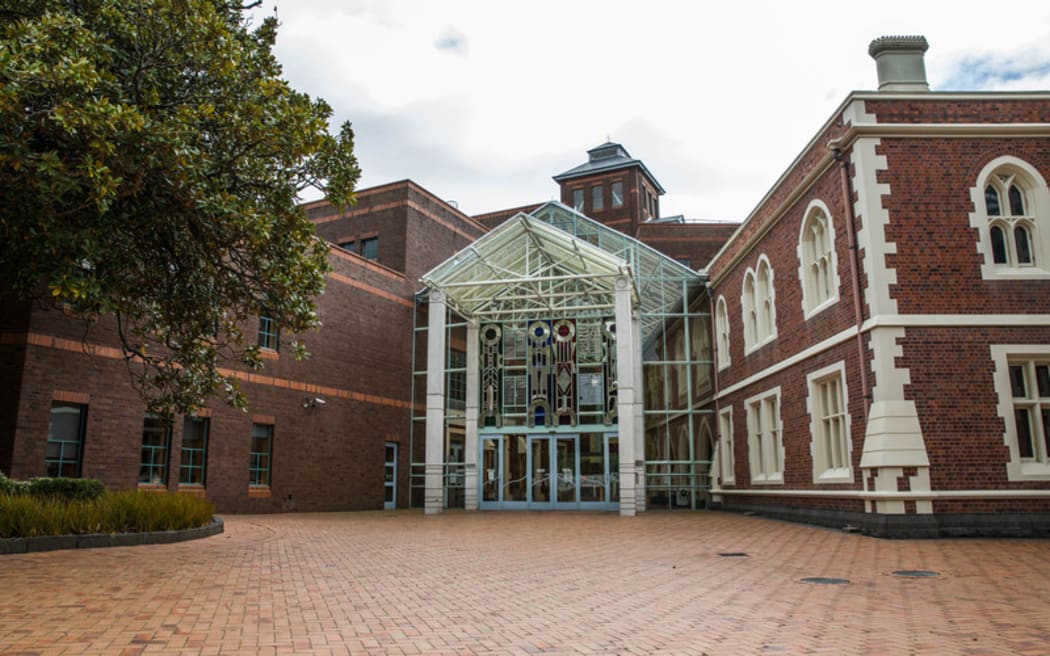The trial of the man accused of hammering his flatmate to death as he slept has seen experts clash over whether the defendant's autism could have played a part.

Entrance to the High Court in Auckland. Photo: RNZ / Cole Eastham-Farrelly
Jiaxin Tu, known as Max Tu, is on trial at the High Court in Auckland where he has denied murdering 19-year-old Shane Paul Hawe-Wilson.
The Crown said Tu was obsessed with a woman for years and acted out of jealousy when he used a hammer to murder her new boyfriend, Shane Hawe-Wilson.
He crept into the couple's bedroom and hammered Mr Hawe-Wilson and later got into bed with the couple.
But Tu's lawyers said he was suffering a disease of the mind at the time and was incapable of knowing right from wrong.
Yesterday, a psychiatrist for the defence, Dr Russell Wyness, told the jury that Mr Tu's autism could have resulted in him perceiving his situation as one where he had to kill Mr Hawe-Wilson or he would die.
He said the autism combined with his anxiety and delusional beliefs that he was a god could have led him to carrying out the killing.
The doctor concluded he was not guilty by reason of insanity.
But the Crown's expert disagreed.
Dr Peter Dean said Mr Tu was suffering from a schizo-effective disorder.
In regards to autism, Dr Dean said Mr Tu was able to study, he had friends and a girlfriend. In short, he was functioning in society and if he had autism it was very mild.
Dr Dean said Mr Tu had a dramatic turn in 2007 after an assault on his mother.
He said Mr Tu had delusions that he was god or a re-incarnation of Jesus and believed others to be fake creatures.
But Dr Dean found he knew right from wrong.
He concluded by saying schizoaffective disorder may have influenced his actions but he knew right from wrong and was not legally insane.
He said that could be seen in his dealings with police and his belief he was acting in self-defence.
Dr Dean said Mr Tu may have been on the autism spectrum but not to the degree where he was unable to understand what was morally wrong.
He also said there was no clinical link between autism and violence, but there was between schizophrenia and violence.
He said as a psychiatrist who treats people who have committed offences - he would like to find Mr Tu insane because he is someone who needs care over a long period of time.
But he said Mr Tu knew what he was doing was morally wrong.
Today the jury is due to hear closing arguments from the Crown and defence before Justice Whata sums up the case and they retire to consider their verdicts.


